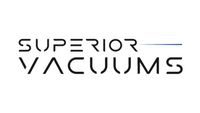The Benefits of HEPA Filtration
The purpose of a vacuum cleaner is to get rid of the accumulating dirt and dust inside your house. However, if you're struggling with severe allergies or your home is possibly polluted with airborne lead particles or mold, you may have to step it up and consider getting a HEPA filter vacuum cleaner.
What is a HEPA Filter?
Widely known as HEPA filters, High-Efficiency Particulate Air filters consist of a mat of thick fibres arranged in folds, forming a fine mesh. It should trap at least 99.97 percent of airborne particles in order to meet federal standards. Commonly used in air filters and vacuum cleaners, HEPA filters work by pushing the air to trap hazardous particles through the mesh.
How Do HEPA Filters Work in a Vacuum Cleaner?
HEPA filters were invented in WWII and used in laboratories to prevent the escape of hazardous radioactive particles. Nowadays, these filters are not only used in air filtration systems but in vacuum cleaners as well.
Regardless of whether the model of your vacuum is bagless or bagged, it creates suction that pulls pollutants through the vacuum. It usually uses a rotating brush which helps in loosening the particles from upholstery and carpets. The air goes through a bag or chamber for collection, and again gets circulated back into the room. Recirculation is a critical aspect of the process. The vacuum might be blowing all of the dust and other pollutants back into the room without a filtration system. In reality, there are cheap vacuum cleaners that precisely do that, with their badly designed filters.
The typical vacuum cleaner is good for gathering large particles of dust, pieces of pet hair, and other fairly large pollutants, which is usually enough for most people. But, dust mites and other particles would be much smaller from what the typical vacuum cleaner filter can collect. During the process of vacuuming, they are thrown back into the air. So if you have extreme allergies to dust mites, you would need to get a better filter system for your vacuum.
Vacuum filters typically serve as a sieve in which the particles that are smaller than the largest opening could go through. A HEPA vacuum, however, is different. By isolating particles which then clings to the individual fibers, it traps the smallest pollutants as air is forced via a fine mesh. To qualify a filter as a HEPA, 99.97 percent of all particles greater than 0.3 microns must be removed. You can see just how small particles a HEPA filter gathers as compared to a dust mite that is 5 microns and a human hair that is 40 microns.
Things to Remember When Purchasing HEPA Filters
There are a lot of imitation HEPA filters that are being sold on the market right now. That is why you need to remember some important things to help guarantee that the filter you buy is a real HEPA.
First off, it should pass a test and the findings would be printed on the filter itself. The results must be 0.3 microns, indicating that it filters out 99.97 % as per the government standard. Some vacuum cleaners are classified as filters with type HEPA, but these aren't the real deal though, because they don't have to pass a performance test. Although similar in design, these HEPA type filters are less costly and less efficient, which most often filter out only 85-90 percent of particles.
The MERV rating is another aspect to test for. Minimum Efficiency Reporting Value is an assessment system that rates the ability of a filter to remove particles from the air on a scale of 1-20. Higher ratings indicate that the filter gets rid of smaller and more particles.
To have an effective HEPA filtration system, the vacuum cleaner should be sealed. This implies that there is no airflow all around the filter thus pushing it all through the mesh and trapping the highest amount of particles possible. If the unit is 100% sealed, it can prevent significant amounts of particles from re-entering the ambient air. HEPA filters are intended to collect large quantities of dust particles from their return airflow, prohibiting fewer bits of microbial dust from escaping into the exhaust.
HEPA filters prove to be useful for home and office use by preventing the release of infinitesimal impurities and other pollutants back into the air we breathe. Traditional vacuums do not capture dust particles properly and they push out tiny air pollutants back into the air.
The transition from traditional filters to HEPA filters significantly enhances the quality of indoor air and helps to prevent flare-ups in those suffering from allergies or symptoms of asthma. HEPA filters can aid in the elimination of dust, mold, bacteria, smoke, and pollen.
Here at Superior Vacuums, we have a variety of HEPA Certified Products that could be useful, especially in this time of coronavirus outbreak. Click on this link to know more about what we offer in our Vacuum Shop.




Leave a comment